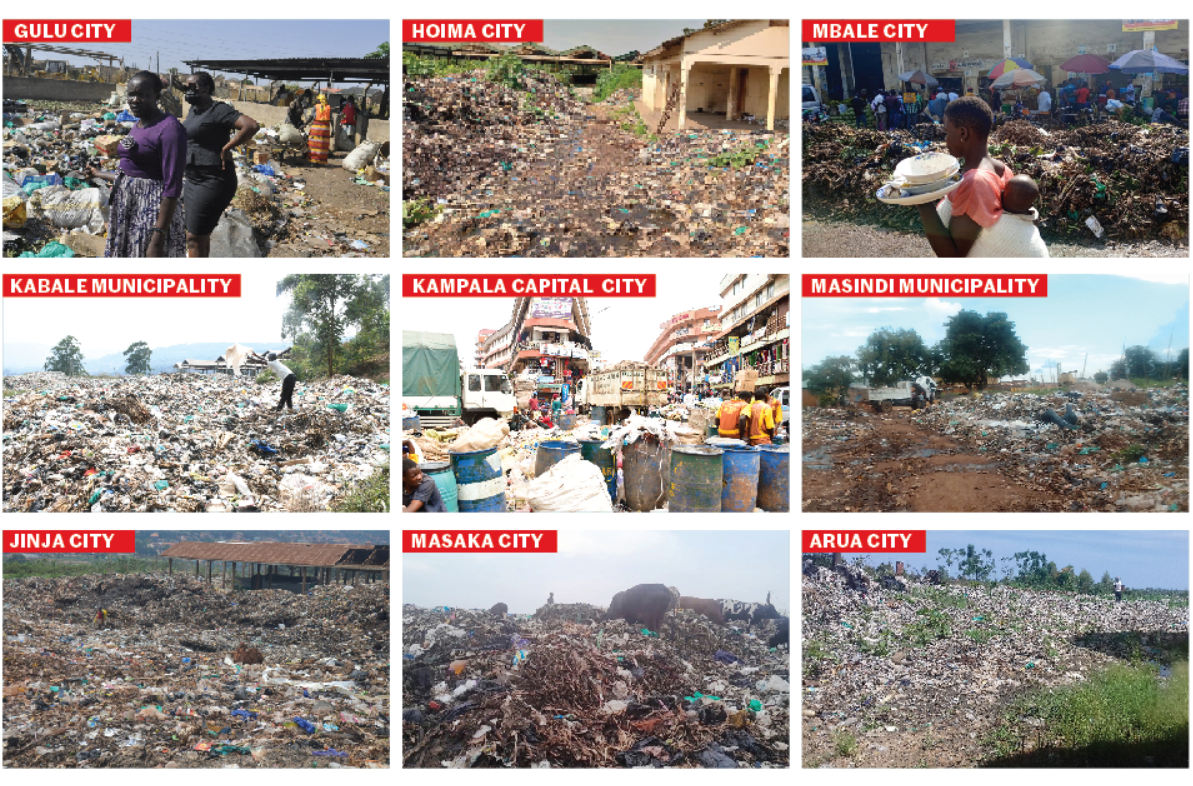
Traders go about their businesses in downtown Kampala amid uncollected heaps of garbage on August 15, 2024. PHOTOs | STEPHEN OTAGE
Kampala’s waste management crisis has reached alarming levels, exemplified by the tragic deaths in the Kiteezi landfill disaster, where poor waste management resulted in the loss of lives. The incident, which left at least 34 dead, compelled President Museveni to take immediate action, dismissing three top Kampala Capital City Authority (KCCA) officials.
This event underscores the urgent need for sustainable waste management solutions in Kampala, where only 40 percent of waste is properly collected, with the rest accumulating in illegal dumps, clogging drainage systems, and creating health hazards.
In response to this crisis, four foreign companies have expressed interest in waste recycling projects in Kampala, presenting a crucial opportunity to turn the city’s waste problem into a sustainable solution. These potential investments offer hope for alleviating the growing pressure on the Kiteezi landfill, which already exceeded its capacity. However, advocacy groups and civil society must ensure that these partnerships prioritise long-term environmental sustainability and community well-being.
While foreign investment can play a significant role in addressing Kampala’s waste problem, past experiences have shown that large-scale projects without proper oversight often overlook the needs of local communities and the environment.
Therefore, it is vital that the selection of these companies be transparent and that the government shares details about their environmental track records and recycling practices.
This transparency should be coupled with public consultations, involving local residents, environmental organizations, and civil society groups. These consultations will ensure that the people most affected by the waste crisis have a voice in the decision-making process. A more participatory approach would help prevent issues such as unfair labor practices, community displacement, or environmental degradation.
Implementing effective recycling solutions can greatly reduce the amount of waste going into landfills like Kiteezi, preventing future tragedies. By diverting waste from landfills and transforming it into usable products like compost, biofuels, or construction materials, recycling can have a profound positive impact on Kampala’s environment.
Moreover, this shift toward recycling could create thousands of green jobs for Kampala’s unemployed youth, from waste collectors to skilled workers in recycling plants. This would help mitigate one of the city's significant challenges—youth unemployment—while simultaneously addressing waste management.
Local advocacy groups and grassroots movements have a critical role to play in holding both foreign companies and local authorities accountable for their waste management promises. These groups can monitor the environmental and social impacts of the recycling initiatives and ensure that the companies comply with environmental regulations. By advocating for citizen involvement, they can also promote greater community participation in decision-making processes, fostering more equitable and sustainable outcomes.
Through public awareness campaigns, workshops, and civic education, advocates can also encourage residents to adopt better waste management practices, such as separating recyclable materials at home. This will reduce the overall waste burden on the city and ensure that recycling initiatives are successful at the grassroots level.
The recent Kiteezi landfill disaster has served as a wake-up call for Kampala to urgently address its waste management crisis. The interest of foreign companies in waste recycling offers a unique opportunity to revitalize the city's approach to waste management. However, for this to be truly transformative, transparency, community engagement, and sustainability must be at the forefront. By involving civil society and ensuring that these investments prioritize long-term environmental and social benefits, Kampala can turn its waste crisis into a model for green urban development.
Sustainable waste management can be achieved, but only if the city learns from past mistakes, prioritizes inclusivity, and builds a system that benefits both people and the planet.
Rhyman Alphred Agaba
Advocacy Officer, Citizens' Concern Africa



